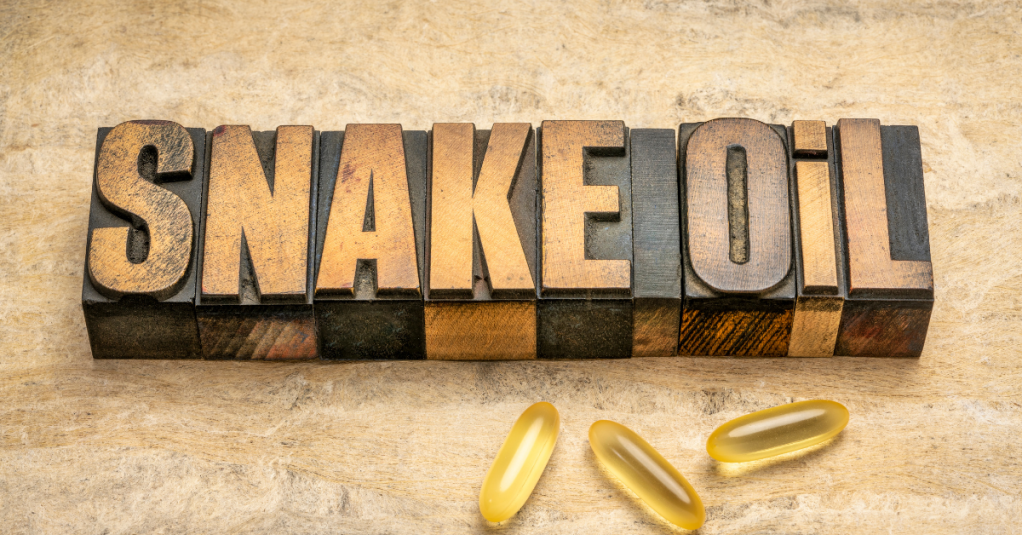We’re coming up on the new year. People are getting their New Year’s resolutions lined up and are seeking the way that they are going to accomplish them. BEWARE! There are plenty of people and companies ready to sell you the easiest, fastest, best way to get there even if what they’re selling doesn’t really work. They know that you’re desperate and you will buy into the dream.

There are things you can look for in promotional material or advertising for products or programs that are clues to its false advertising. These include:
- Using definitive terms, such as “will”, “always”, “proven” (without actually scientific proof), or even “best” is usually a giveaway that it’s false advertising. Nothing always works! There are also too many options to claim “best”. Something could be the best within defined parameters, such as “the best coffee as rated by a panel of 12 coffee drinkers.” One indicator that it could be legit is that it’s not using definitive terms. Instead, they use terms like “can”, “may”, “seems to indicate”, “should” or other terms as well as citing the research that backs up the claim (if it’s based on actual research, not just generically “proven”, they will tell you).
- Using themselves as proof. “Look what it did for me.” First off, they’re selling something and they want you to buy it. Of course they would say it worked for them.
- Using a celebrity endorsements. This is not to say that celebrities don’t use the product, but is that the reason they got the benefit? They are paid to say that it works and there could be many reasons why they may look or feel good that are not product or program related.
- Even using others’ testimonials is not a good bet. The placebo effect, the “if you believe it, it can actually help” scenario, may be why they got their results and which may not translate to you. (For more on the placebo effect click here.)
- The best way to know if something really works is to look for the peer-reviewed research (in journals). Do an internet search using phrases such as “research studies on…” or “scientific evidence on…” and then check the sources, making sure that they are reputable.
- When in doubt, if it sounds too good to be true, it probably isn’t true.
CNBC recommends, “When in doubt about whether a site or a claim is real, there are resources available such as FactCheck.org or APFactCheck. It’s also always worth seeing if the information is corroborated in mainstream news sources. For health information, authoritative sites to check include the Centers for Disease Control and Prevention and the World Health Organization.”
Don’t get fooled this season (or any other for that matter) and make sure you do more research on the product or program before you buy into it.